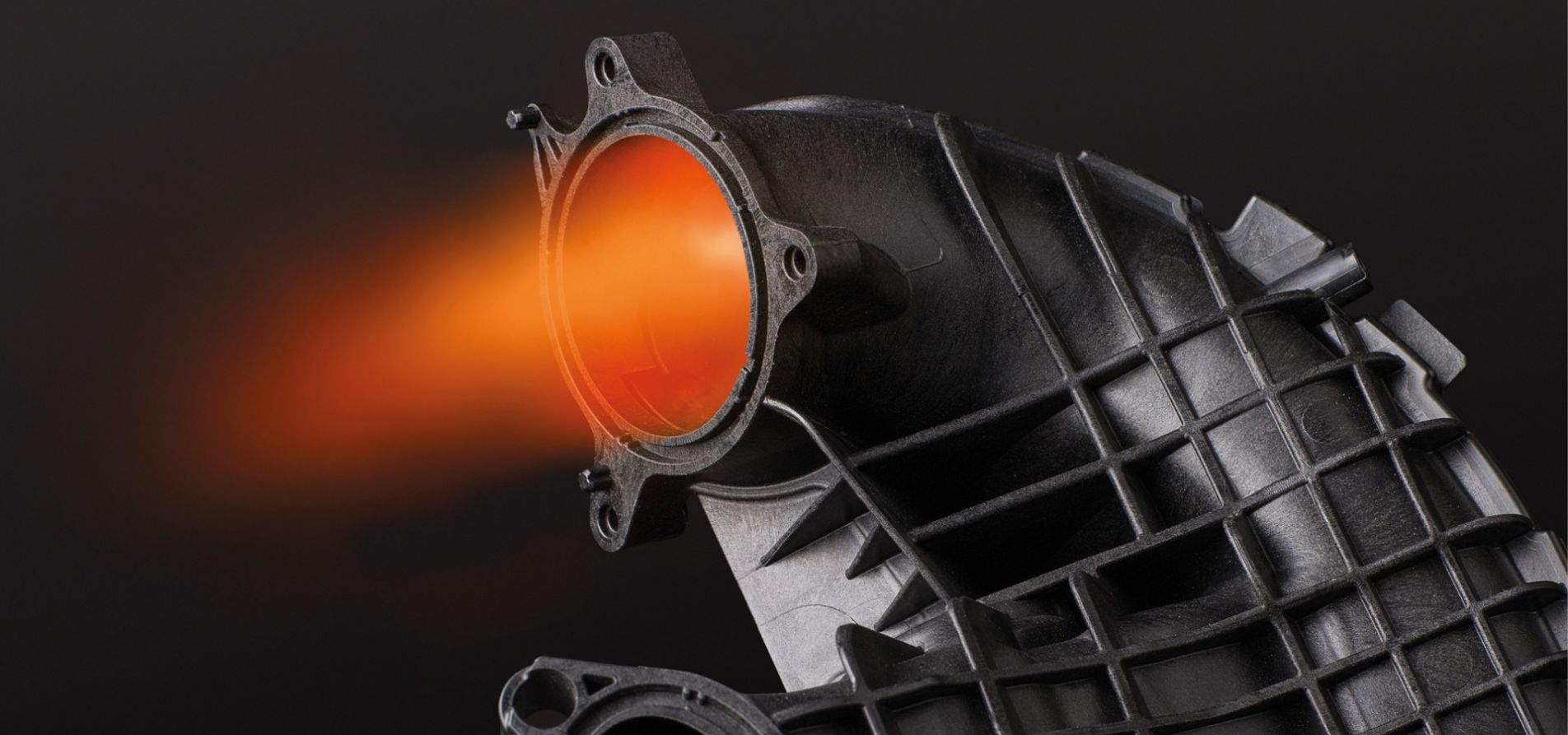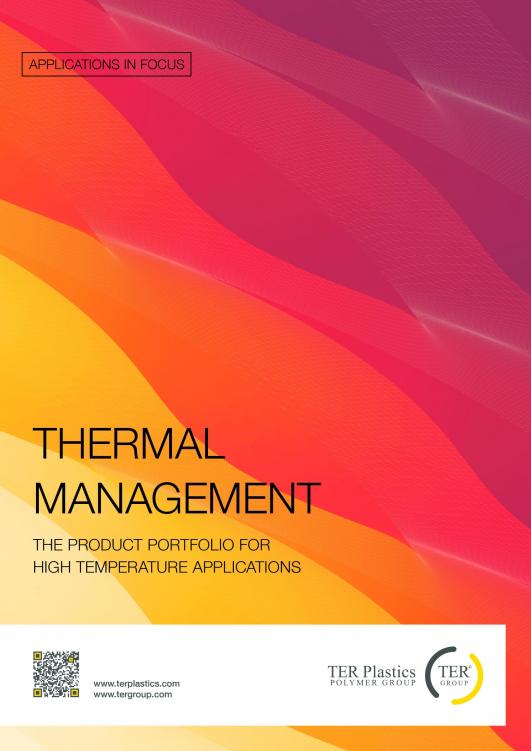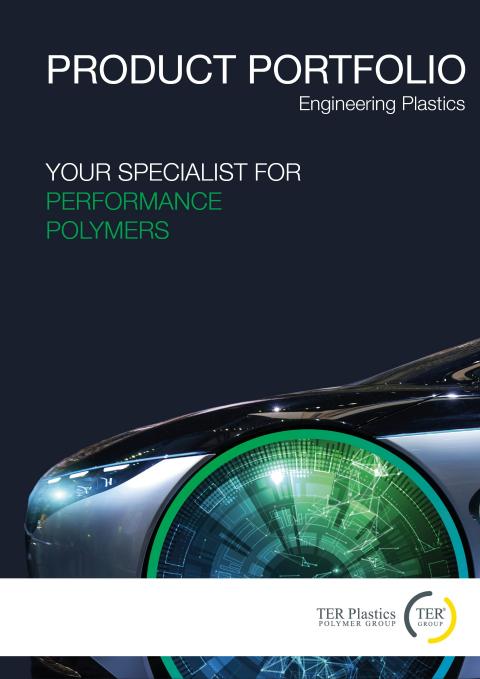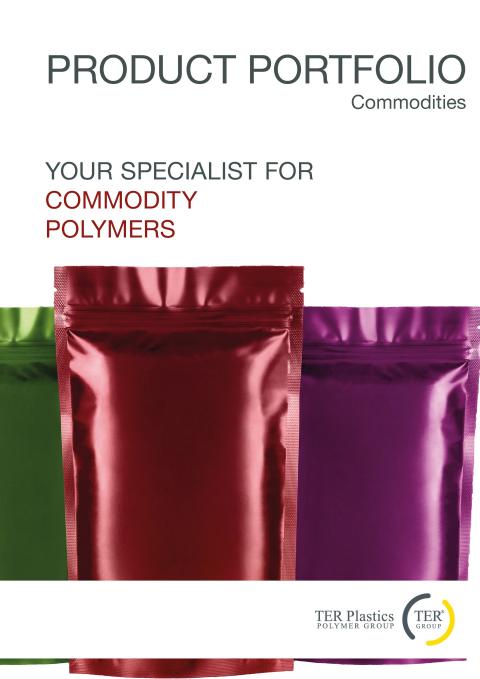Thermal Management
High Performance Polymers
High-performance polymers stand head and shoulders above engineering plastics thanks to their specific spectrum of properties. PPS is characterised by outstanding chemical resistance at continuous operating temperatures of up to 240 °C and by outstanding creep resistance. The long-term operating temperature of LCP also extends as high as 240 °C. In the short term, it can even withstand temperatures of up to 340 °C. Both materials are inherently flame-resistant. Combining them with long-fiber technology can lead to considerable improvements in both creep resistance and dynamic load capacity.

High-temperature polyamides
In comparison with conventional polyamides, high-temperature polyamides are characterized by an elevated glass transition point and melting point. Continuous operating temperatures of up to 230 °C can be achieved using special additives. Partially aromatic constituents lead to increased dimensional stability and creep resistance. Long-chain constituents improve the chemical resistance, especially with respect to aggressive salts. This group includes PA 4.6, PA 4T, PPA and PA 10T.
Heat-resistant polyamides
Polyamide 6, 66 and PA 66/6 blends, are characterized by out-standing workability and balanced technical properties. General heat stabilization processes lead to continuous operating temperatures of up to 160 °C. Specific stabilisation can raise this level to up to 210 °C. Additional modifications of the viscosity and sliding friction behavior pave the way for a broad range of applications in the automotive, mechanical engineering, furniture and sports industries. Long-fiber technology can be used to bring about considerable improvements in heat resistance, creep behavior and dynamic force absorption.
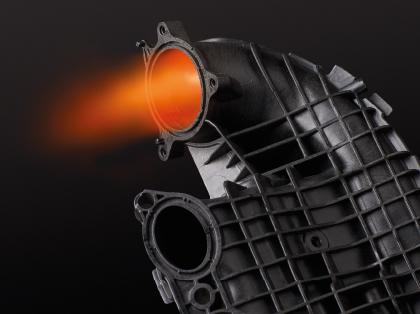
Thermoplastic elastomers
Soft, flexible materials are no exception when it comes to meeting the required thermostabilities. Thermoplastic elastomers are characterized by good resilience and a broad range of hardness grades (Shore A 40 – Shore D 50). The products withstand continuous operating temperatures of 110 °C. In the short term, exposure to temperatures of up to 150 °C is also possible. In the event of even higher thermal requirements, it is possible to use TPC (thermoplastic copolyester). These ranges of products are available in continuous operating temperature classes ranging from 120 °C to 175 °C
Transparent acrylic solutions for high heat requirements
For requirements concerning transparency and maximum thermal stability, the material PMMI will stand the toughest specifications. PMMI is characterized by a transparency of over 90 % while keeping the optical properties on exposure to temperatures of up to 170 °C.
PMMA is often used in interior automotive applications where thermal requirements and transparency or extreme high gloss finishes are a must. With the greatest transparency, more than 90 %, and outstanding weathering resistance, PMMA will stand continuous operating temperatures up to 110 ºC
Styrenic materials for automotive applications
Heat-resistant ABS is predominantly used in the automotive industry. Components can withstand exposure to elevated temperatures reaching as high as 115 °C, e.g. for external bodywork parts, seat base covers or seat parts. ABS is excellently suited to dyeing but can also be painted. Where external bodywork parts are not painted, ASA is used. This is characterized by outstanding weather resistance.


